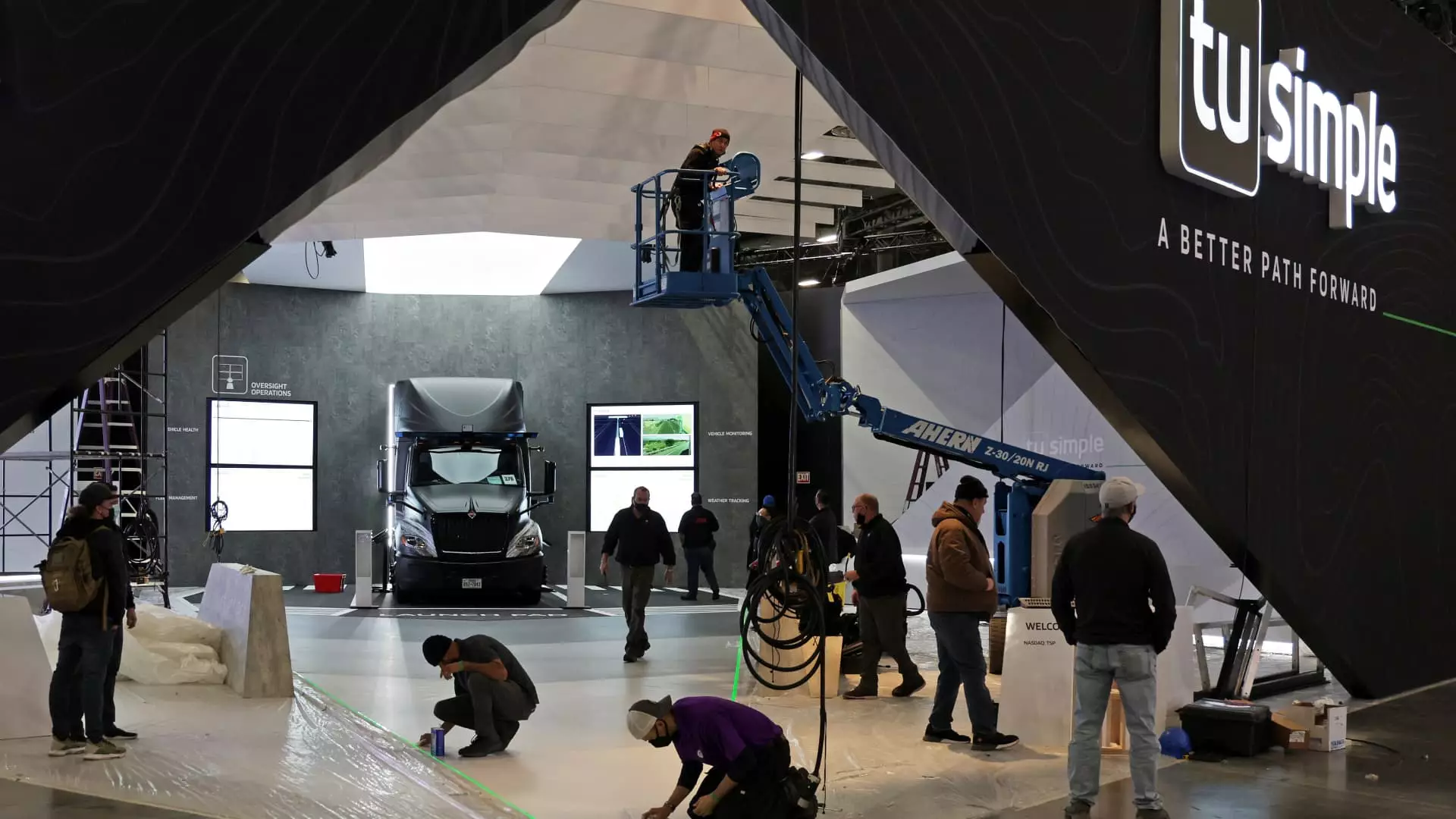The journey of TuSimple, once a prominent name in autonomous trucking, is a fascinating case of adaptation and transformation in the face of adversity. The company’s recent rebranding to CreateAI marks a significant pivot from its original mission in self-driving technology to a fresh focus on the burgeoning fields of video games and animation. This strategic shift highlights not only the challenges faced by TuSimple in the autonomous vehicle sector but also reflects broader trends within a rapidly changing technological landscape.
As TuSimple transitions into CreateAI, it sheds light on the difficulties encountered by self-driving startups in recent months. The closure of General Motors’ Cruise robotaxi business serves as a stark reminder that the dream of fully autonomous vehicles remains fraught with technological and regulatory hurdles. TuSimple grappled with a series of setbacks that contributed to its downfall, including serious safety concerns surrounding its driverless systems, a substantial $189 million settlement of a securities fraud lawsuit, and its eventual delisting from Nasdaq earlier this year. These challenges exposed the vulnerabilities common in a sector that was once brimming with promise.
The company’s struggles didn’t go unnoticed by investors. Reports indicated that, prior to the rebranding, TuSimple had recorded a net loss of $500,000 in just the first three quarters of 2023. Additionally, a staggering $164.4 million was allocated to research and development efforts during the same period, showcasing the high costs associated with innovation in such a competitive industry. The abrupt leadership changes, exemplified by the return of CEO Cheng Lu, only added to the uncertainty engulfing the corporation.
Under the new identity of CreateAI, Cheng Lu articulates an optimistic vision for the company, aiming to achieve operational break-even by 2026. A significant catalyst for this aspiration appears to involve an exciting video game project inspired by the beloved martial arts novels of Jin Yong. The anticipated launch of an initial version of the game within this timeframe may not only demonstrate the company’s innovative capabilities but also mark its departure from its troubled past.
Looking ahead, Cheng forecasts “several hundred million” dollars in revenue for 2027 following the rollout of a fully developed version of the game. This ambitious projection encapsulates the potential of the gaming industry and its synergy with the company’s development of artificial intelligence technologies. Mo Chen, a co-founder of the company, brings a substantial connection to the Jin Yong family, demonstrating a long-standing commitment to the cultural and entertainment aspects of the business.
In a significant leap toward establishing itself in the AI landscape, CreateAI also unveiled Ruyi, its first major AI model, which offers open-source tools for visual tasks and is accessible via the Hugging Face platform. This move not only aligns with current trends in AI research but also signifies a strategic commitment to harnessing generative AI, which holds the potential to transform the gaming and animation spaces significantly.
Cheng’s assertions regarding shareholder support post-rebrand reinforce the notion that investors are optimistic about this new path. The goal to increase the workforce from around 300 to 500 employees indicates ambitions for growth and expansion in the coming years, which is a positive signal for stakeholders. Moreover, the partnership forged with Shanghai Three Body Animation to bring the acclaimed “The Three-Body Problem” series to both an animated film and a video game underscores CreateAI’s commitment to merging technology with creative storytelling.
Despite the political and technological landscape posing challenges, including U.S. restrictions on Chinese businesses and advanced semiconductors, Cheng maintains that the company employs a balanced mix of cloud computing providers, minimizing the impact of these hurdles.
CreateAI’s transformation from TuSimple exemplifies a determined approach to navigating a volatile technological environment. As the company pivots toward video games and animation, it embodies the resilience required in today’s tech landscape, highlighting a commitment to innovation while remaining sensitive to the challenges that have surfaced. The coming years will undoubtedly shape CreateAI’s future, demonstrating the balance between ambition and adaptability in a world of rapid technological evolution.
While the journey of TuSimple was marked by difficulties, its renewal as CreateAI presents an opportunity to redefine itself and explore new avenues in the creative domain, all while leveraging the power of emerging technologies.


Leave a Reply